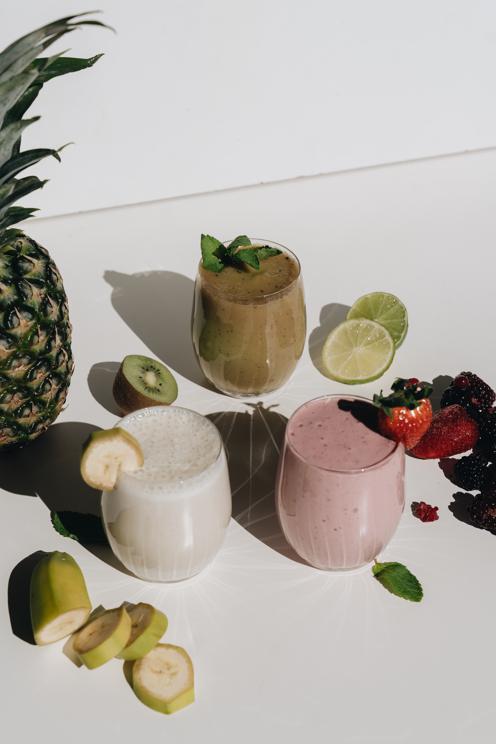Match The Vitamins With The Health Benefits They Provide.
Vitamins are an important part of a healthy diet, and understanding which vitamins provide which health benefits can help you to make sure you’re getting all of the vitamins your body needs. In this blog, we’ll take a look at the different vitamins and the health benefits they offer, helping you to make sure that your diet is as healthy as possible.
Vitamins a and its health benefits


Vitamins are essential for our overall health and well-being, and each vitamin has its own unique set of benefits. Knowing what vitamins to take and the health benefits they provide can help us to ensure we get the most out of our nutritional intake. Let’s take a look at Vitamin A and the health benefits it provides.
Let’s take a look at Vitamin A and the health benefits it provides. Vitamin A is an essential fat-soluble nutrient that helps to support healthy eyesight, skin, and immune system. It also helps to protect against infections and can aid in the growth and development of bones, teeth, and other organs.
Vitamin A can be found in a variety of foods including liver, eggs, carrots, and some dark leafy green vegetables. Eating these foods can help to ensure that you get the recommended daily intake of Vitamin A and enjoy all of the associated health benefits.
Vitamins b and its health benefits


Vitamins B are essential for a healthy lifestyle and have a wide range of health benefits. With so many different B vitamins to choose from, it can be difficult to know which ones to take and which health benefits they provide.
Vitamin B1 (thiamine) helps the body’s cells convert carbohydrates into energy. It also helps to maintain healthy nerve and muscle function.
Vitamin B2 (riboflavin) helps the body break down proteins, fats, and carbohydrates, and it helps keep skin, hair, and nails healthy. Vitamin B3 (niacin) helps the body use fats and proteins, and it is important for healthy digestion. Vitamin B5 (pantothenic acid) helps the body break down carbohydrates and fats into energy, and it helps keep the skin healthy.
Vitamin B6 (pyridoxine) helps the body make hormones and red blood cells, and it helps to keep the immune system healthy. Vitamin B7 (biotin) helps the body break down carbohydrates and fats, and it helps keep the skin and hair healthy.
Finally, Vitamin B9 (folate) helps the body produce red and white blood cells, and it helps to prevent birth defects. With so many amazing health benefits, it’s clear that vitamins B are an essential part of a healthy lifestyle.
Vitamins c and its health benefits


Vitamins C is essential for a healthy lifestyle, providing a wide range of benefits to keep us in top shape. It helps to bolster our immune system, promote healthy skin, and even reduce the risk of cancer and heart disease.
By matching each vitamin with the health benefits it provides, we can learn how to maximize the positive effects of this important nutrient. Vitamin C helps to protect against free radical damage, which can cause inflammation, oxidative stress, and other illnesses. It also helps to boost collagen production for healthy skin, and can even help to reduce the risk of cancer and heart disease.
Additionally, vitamin C helps to reduce the risk of macular degeneration and age-related vision loss. Finally, vitamin C is an important part of a healthy immune system, helping to protect against infection and disease. With so many benefits, it’s no wonder why vitamin C is essential for a healthy lifestyle.
With so many benefits, it’s no wonder why vitamin C is essential for a healthy lifestyle.
Vitamins d and its health benefits


Vitamins are essential for our bodies to function properly and stay healthy. Vitamins D is no exception and provides a range of health benefits. From helping to build strong bones and teeth to boosting immunity, Vitamin D is a powerhouse nutrient.
From helping to build strong bones and teeth to boosting immunity, Vitamin D is a powerhouse nutrient. To help you better understand the benefits of Vitamin D, let’s match the vitamins with the health benefits they provide. Vitamin D helps to build strong bones and teeth by allowing the body to absorb and use calcium more effectively.
It also helps to regulate the immune system, reducing inflammation and reducing the risk of certain infections. Additionally, it helps to regulate mood, as low levels of vitamin D have been linked to depression. Finally, Vitamin D is also believed to have a role in protecting against certain types of cancer.
All of these benefits make Vitamin D an important component of any healthy lifestyle.
Vitamins e and its health benefits


Vitamins are essential for optimal health, and vitamins E is no exception. Vitamin E can provide a range of health benefits, including improved heart health, better skin, and a stronger immune system. However, it’s important to understand which types of vitamins E can provide the best health benefits and how they match up with the specific health benefits they provide.
However, it’s important to understand which types of vitamins E can provide the best health benefits and how they match up with the specific health benefits they provide. Vitamin E can be divided into eight different types, and each type has its own set of health benefits. Alpha-tocopherol, for example, is an antioxidant that can help protect cells from damage caused by free radicals.
It can also help reduce the risk of heart disease and certain cancers. Gamma-tocopherol, on the other hand, helps protect against inflammation and can even reduce the risk of stroke. Beta-tocopherol helps keep cholesterol levels in check and can provide additional protection against stroke and heart disease.
Finally, delta-tocopherol is excellent for improving the health of the skin and boosting the immune system. By understanding the different types of vitamin E and how they match up with the health benefits they provide, you can make sure you’re getting the most out of this essential vitamin.
Vitamins k and its health benefits


Vitamins K plays an important role in your overall health, as it is essential for many bodily functions. Matching up the vitamins with the health benefits they provide is a great way to make sure you are getting the most out of your daily diet.
Vitamin K helps to promote healthy blood clotting, build strong bones, and maintain healthy levels of calcium in the body. It also helps to protect against heart disease and cancer, and can aid in reducing inflammation. Additionally, Vitamin K can help to improve cognitive function and enhance mood.
So, by understanding the connection between vitamins and health benefits, you can make sure you are getting the most out of your diet and supplement plan.
Final Touch
In conclusion, vitamins are essential for maintaining good health and well-being. They help to promote energy, boost the immune system, aid in digestion, and help to improve our mood. Different vitamins provide different benefits and it is important to ensure that we are getting enough of the right ones.
Eating a balanced and varied diet, including plenty of fruits and vegetables, is a great way to ensure that we are getting enough vitamins and other essential nutrients.







